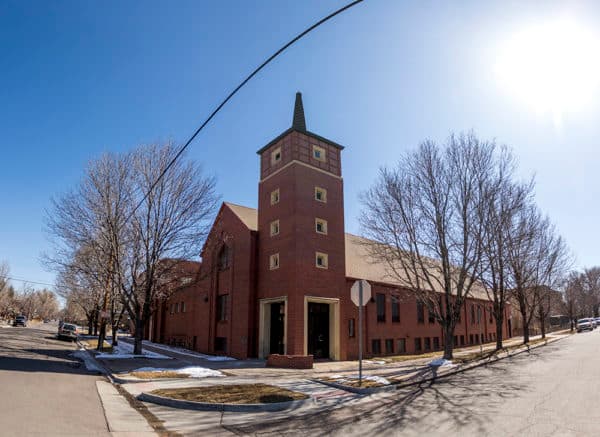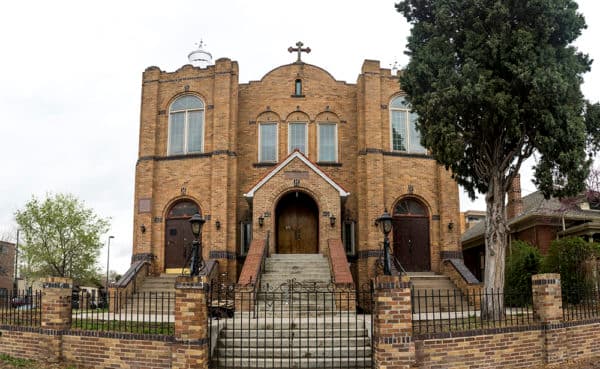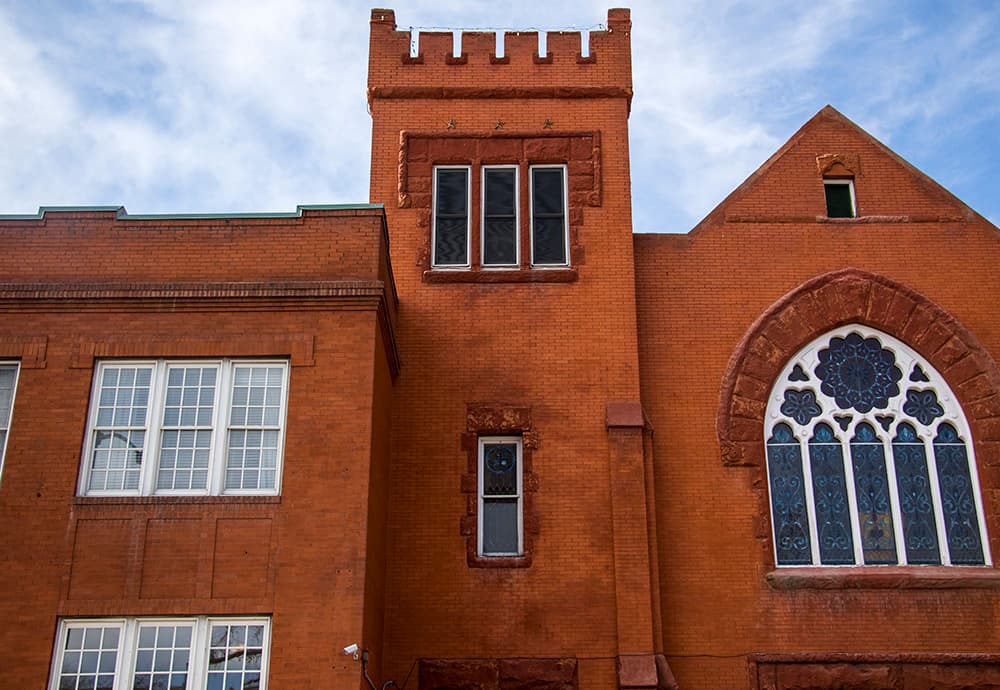
In October of 2017, Presbytery of Denver, a group of Presbyterian congregations around Colorado, sold a church property on 1700 South Grant Street to Revesco Properties for $3.15 million.
Around the time of the sale, executives from Revesco spoke with BusinessDen about their inclination to turn the building into condos.
In order to pursue their condo goals, Revesco Properties needed to rezone the building from single-family use to something more applicable to their vision. Rezoning land is no easy feat. It's a complicated process, and it takes the approval of a plethora of community stakeholders.
We still don't know the official plan for the building on Grant Street, but we do know the transaction was a part of a larger trend of Denver's churches being sold.
Church attendance is down across the country, and that's true in Colorado, too.
We're among the 10 states with the fewest residents attending church on a weekly basis, according to research conducted in 2015.
The physical manifestation of this cultural shift is a significant decline in the need for church buildings. As Denver’s real estate market benefits from a population boom and sizable increases in urban density, churches find themselves faced with tough decisions about whether to maintain or sell their properties.
Many churches are opting for the latter -- about 60 churches around Denver have recently been sold or listed for sale, according to LoopNet listings. While these potential transactions pose challenges for church congregations, legislators and neighborhood organizations also have to navigate the physical changes these churches' absence will have on their neighborhoods' landscape.
A neighborhood’s culture is in many ways dependent on its surroundings, and large increases of residents can fundamentally reshape a neighborhood’s character. Platt Park resident Dawn Dobson says her community has a "front porch culture," and she worries that will be lost if the church turns to multi-family housing.
Dobson described her worries about these potential changes, saying: “This type of density is a threat to the vision of a multi-generational neighborhood, will put a strain on parking, increase traffic, and threaten the stability for families.”
She feels that the loss of churches will open an opportunity for more dense development -- whether residents want it or not. “I’m sensing a trend with city council that they're leaning more towards development and ignoring neighborhood associations," she said. Transit and housing advocates, however, have argued that the city should encourage denser housing, especially near transit stops, as a response to the housing crisis.

What happens with all of these unused church buildings?
It's difficult for churches to sell their properties at appropriate prices due to complicated zoning procedures, according to Councilwoman Mary Beth Susman.
Often, developers want to turn the large buildings that churches occupy into retail space or condos -- but the zoning restrictions mean they can only be replaced with freestanding houses. Developers haven't been the only ones interested in buying these properties but, as prices continue to escalate, many faith communities and smaller real estate companies have been priced out of the market.
In 2002, civic leaders anticipated the city’s growth and, with the Blueprint Denver plan, tried to preemptively address issues about land use. That plan led the city to zone many church properties for "single family" use.
When the plan was created, however, not enough attention was spent fine-tuning how churches fit into the zoning codes, according to council members Jolon Clark and Susman. As a result, developers face an uphill battle to redevelop church properties.
This is an area lawmakers hope to address as they update Blueprint Denver later this year.
“It’s a complicated process," Susman said. "Rezoning plans go from the planning office to a community planning board, then to a development and planning committee, and that’s just the start before it even reaches the council meetings.”
So, what's the future for churches?
Councilman Clark thinks the city needs to pay more attention to individual church properties and their surroundings.
“It's going to take more than Blueprint Denver. We need something that is even more micro than a neighborhood plan. Everyone is so different and unique, we need a tool to be having these micro-conversations, and that is totally different from the rezoning conversation," he said.
He highlighted the diversity of church buildings in the city and noted the need for an equally diverse and adjustable solution for them.
“There is no blanket solution. (Community Planning and Development) writes everything to fit in a box, and these churches don’t fit into any of that.” he added, “My fear is we’ll continue to do what we’ve done and say all churches are the same, and they are for single-family homes.'”
For Clark, all of the tension regarding repurposing church buildings can be alleviated by a heavy dose of community input, ensuring there is a clear understanding about the types of edifices residents want in their communities.













